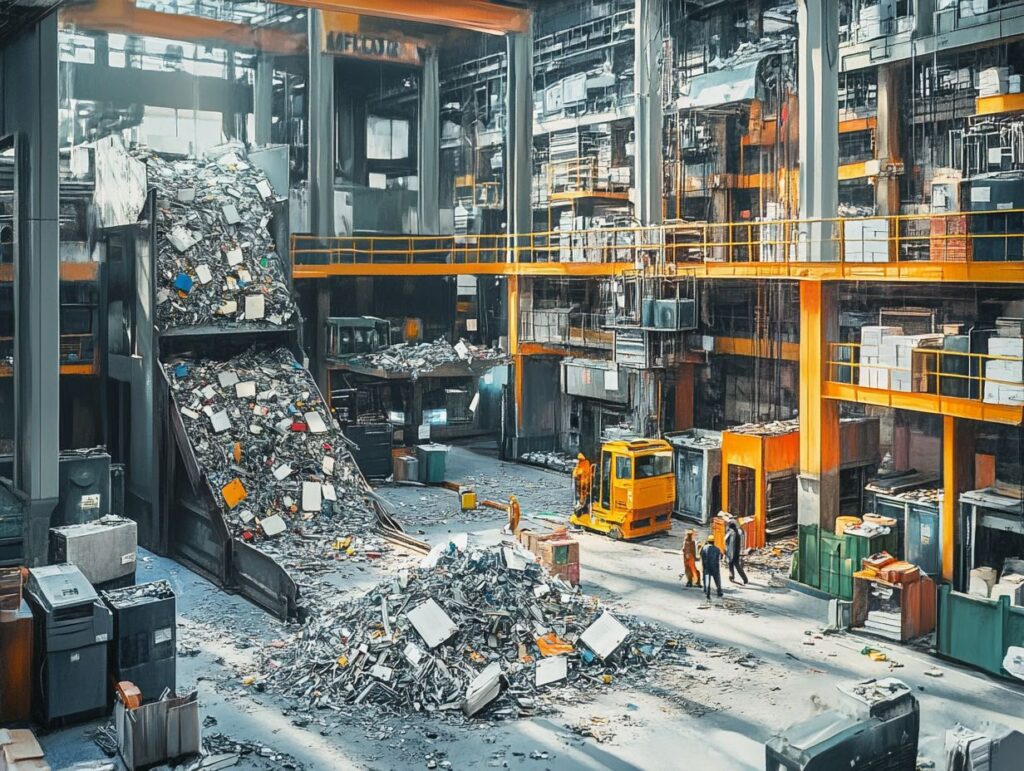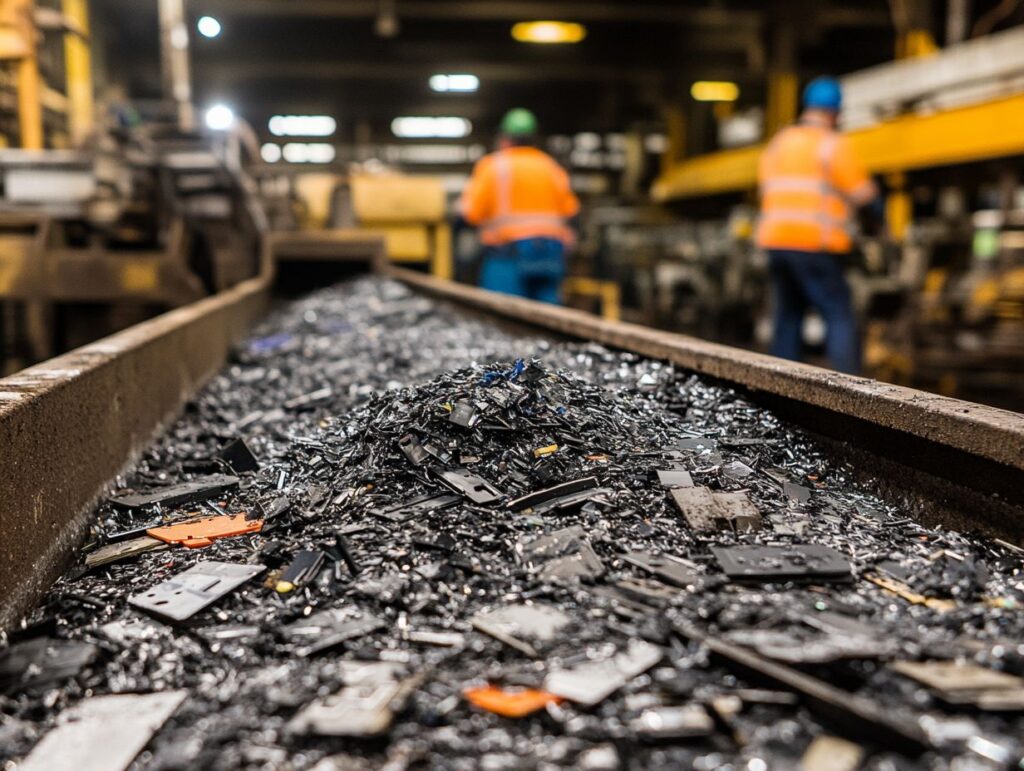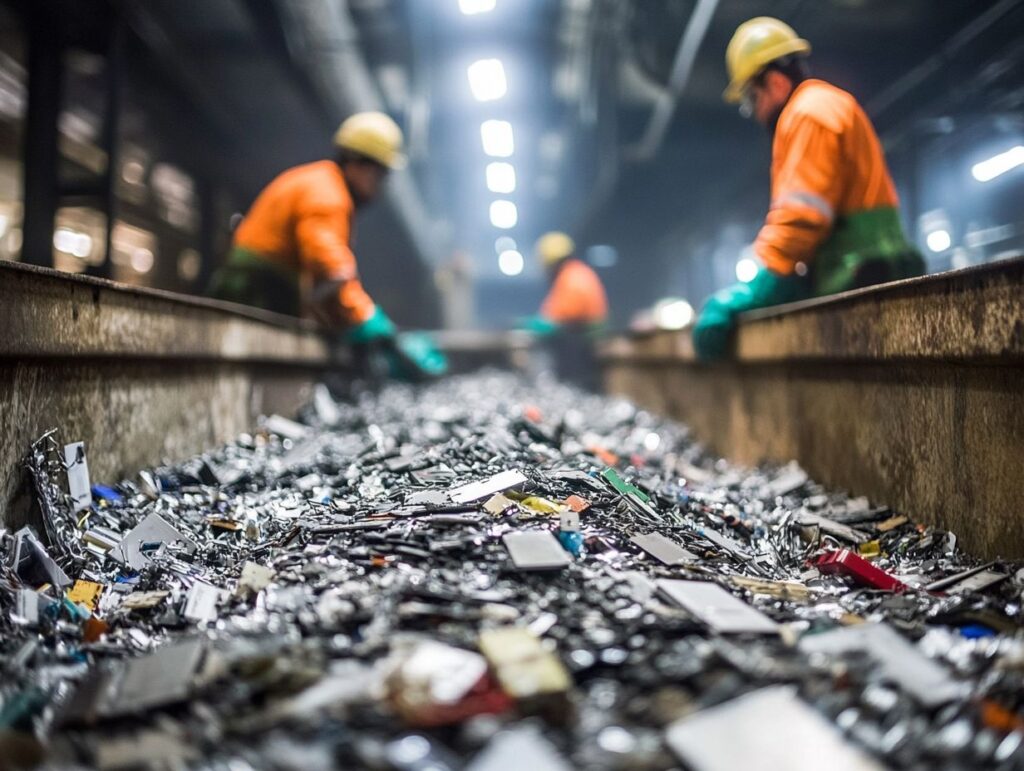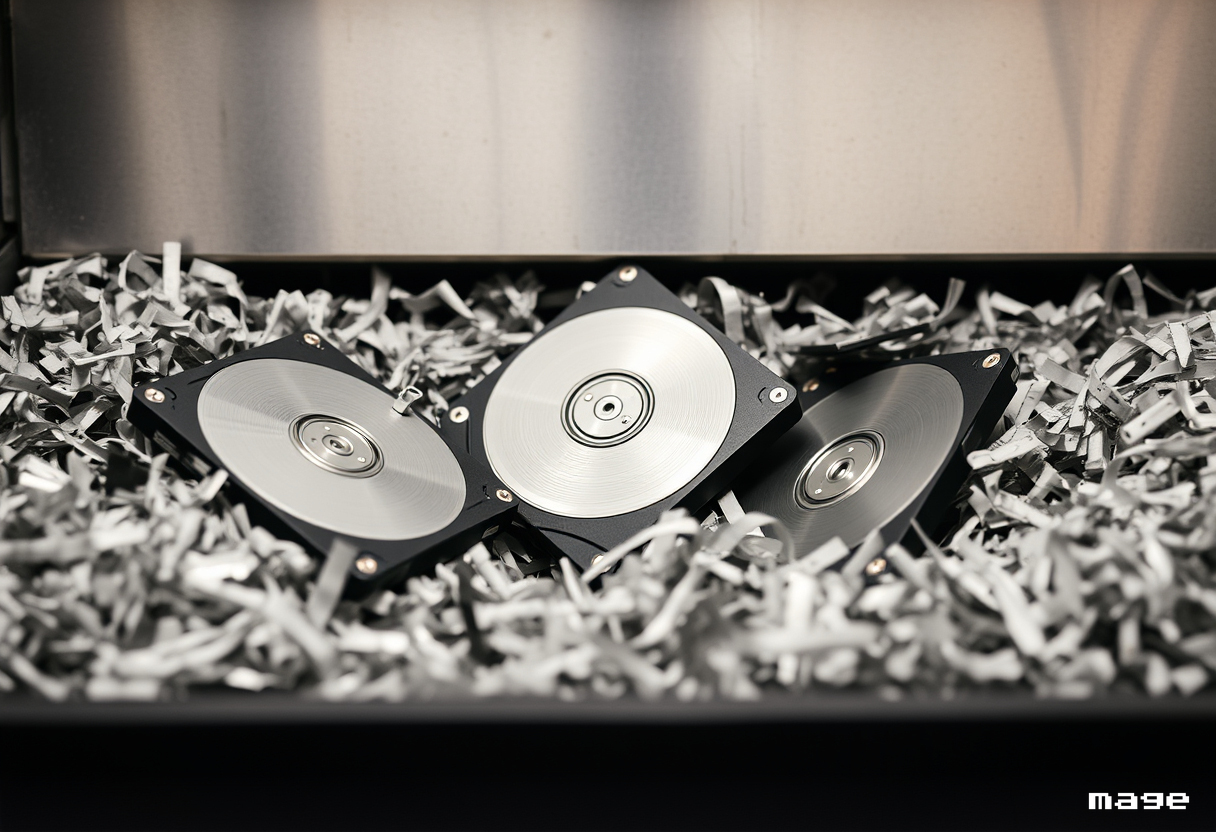Electronic waste, or e-waste, is a growing concern in our tech-driven world. From old smartphones to outdated computers, these items pose significant environmental and health risks if not disposed of properly.
This piece explores the definition and types of e-waste, emphasizing the importance of responsible disposal.
We cover effective recycling methods, the critical role of hard drive shredding, and tips for finding a reliable e-waste disposal company.
Join us as we navigate the complexities of e-waste management and its far-reaching implications.
Understanding Electronic Waste (E-Waste)

Electronic waste, often termed e-waste, comprises discarded consumer electronics, including computers, televisions, and mobile devices that are no longer functional or usable.
With the rapid advancement of technology, the volume of e-waste generated continues to rise, presenting significant concerns regarding its environmental impact and the hazardous materials it may contain.
Proper management of e-waste is essential not only for mitigating landfill overflow but also for fostering sustainability through recycling initiatives and resource recovery.
This understanding is crucial in confronting the challenges associated with end-of-life electronics and ensuring responsible disposal practices.
Definition and Types of E-Waste
E-waste refers to electronic devices that have been discarded, including computers, smartphones, and circuit boards, each presenting distinct challenges for disposal and recycling. This category encompasses a wide array of discarded items, ranging from consumer electronics such as televisions and radios to large appliances like fridges and washing machines, as well as IT equipment, including servers and networking devices.
Many of these products contain hazardous materials such as lead, mercury, and cadmium, which can leach into the environment if not managed appropriately. Understanding the various types of e-waste is essential, as it underscores the importance of responsible disposal methods. This ensures that toxic substances are managed safely and that valuable materials are recovered for reuse, thereby contributing to a more sustainable future.
The Importance of Proper E-Waste Disposal

The proper disposal of electronic waste is essential for protecting environmental health and mitigating the negative effects associated with e-waste, which has the potential to leach hazardous materials into landfills and the surrounding ecosystem.
As the volume of e-waste continues to rise, the urgent need for effective waste management strategies becomes increasingly apparent. These strategies not only address the environmental impact of e-waste but also promote corporate responsibility and sustainable practices within the industry.
By prioritising appropriate disposal methods, stakeholders can significantly contribute to reducing the carbon footprint and fostering a circular economy.
Environmental and Health Impacts
The environmental impact of improper electronic waste (e-waste) disposal is significant, leading to pollution from toxic substances that can adversely affect ecosystems and pose serious health risks to communities.
Hazardous materials such as lead, mercury, and cadmium can leach into the soil, contaminating agricultural land and drinking water sources, which in turn impacts both plant and human health. Additionally, the volatile compounds released into the air from the incineration of e-waste can contribute to respiratory problems and other health issues for residents in proximity to these activities.
Moreover, neglecting to secure the proper disposal of electronic devices increases the risk of data breaches and identity theft, as sensitive information can be easily extracted from discarded equipment. This underscores the critical importance of adhering to appropriate e-waste management practices to protect both the environment and personal security.
Recycling Electronic Waste

Recycling electronic waste is a critical process for resource recovery that effectively diverts valuable materials from landfill sites, thereby contributing to sustainability and mitigating environmental impact.
This recycling process involves the careful dismantling and processing of electronic devices to extract metals, plastics, and other materials that can be repurposed in the production of new products.
As awareness of e-waste recycling continues to grow, numerous recycling centres have been established, providing eco-friendly practices and promoting the benefits of recycling for both consumers and the environment.
Methods and Processes
The methods and processes involved in e-waste recycling are varied, encompassing techniques from manual disassembly to advanced automated systems, all aimed at maximising material recovery and promoting resource sustainability.
These diverse approaches address the complexity of electronic devices; manual processes facilitate the careful extraction of valuable components, while automated systems employ cutting-edge technology to streamline operations and enhance efficiency.
Shredding equipment plays a critical role in reducing the size of materials, thereby enabling easier handling and separation. Subsequently, sorting mechanisms classify metals, plastics, and circuit boards, ensuring that each material is directed to the appropriate recovery stream.
By implementing effective recycling methods, organisations not only contribute to minimising landfill waste but also support the overarching goal of sustainability, thereby making a significant impact on environmental conservation.
The Role of Hard Drive Shredding
Hard drive shredding is a vital component of data destruction, ensuring the permanent elimination of sensitive information to maintain data security and privacy protection. In an environment where data breaches and identity theft are significant concerns, the use of shredding services is imperative for both individuals and businesses.
This secure disposal method not only safeguards private information but also supports responsible e-waste management by enabling the recycling of electronic components, thereby promoting sustainability and resource recovery.
Why Hard Drive Shredding is Necessary
Hard drive shredding is essential to mitigate the risk of data breaches and identity theft, providing a secure disposal method that complies with established standards and regulations.
Neglecting this critical process exposes both individuals and organisations to the potential compromise of sensitive information, including personal identification, financial records, and proprietary business data. The repercussions of such oversights can be severe, resulting not only in financial losses but also in legal consequences under stringent data protection laws such as the General Data Protection Regulation (GDPR) and the Health Insurance Portability and Accountability Act (HIPAA).
Failure to adhere to these regulations may lead to substantial fines, reputational damage, and a loss of customer trust. Therefore, it is imperative to ensure that hard drives are disposed of in a proper and secure manner to maintain data integrity and comply with necessary regulatory requirements.
Benefits of Hard Drive Shredding
The advantages of hard drive shredding extend beyond mere data security; it also fosters ethical disposal and promotes resource conservation by ensuring that electronic waste is processed in a responsible manner.
By choosing shredding, both individuals and businesses contribute to the reduction of the environmental impact associated with discarded electronics. This practice not only mitigates the risk of sensitive data being recovered and misused but also facilitates the recycling of materials such as metals and plastics, thereby decreasing the demand for virgin resources.
Engaging in responsible e-waste management practices demonstrates a commitment to sustainability, ensuring that harmful substances do not leach into the environment. Consequently, shredding aligns effectively with broader e-waste recycling initiatives, contributing to the creation of a safer and cleaner ecosystem for future generations.
Finding a Reliable E-Waste Disposal Company

Identifying a reputable e-waste disposal company is essential for ensuring that electronic waste is managed in a manner that prioritises secure disposal and adheres to environmental regulations.
Factors to Consider
When selecting an e-waste disposal company, it is imperative to consider several factors, including recycling certifications, service offerings, and customer reviews. These elements reflect the company’s commitment to minimising environmental impact.
Evaluating the company’s reputation is essential, as it typically indicates their reliability and trustworthiness in responsibly managing hazardous materials. Verifying compliance with environmental regulations is also crucial, as this ensures that the company adheres to laws designed to protect the environment from potentially harmful e-waste.
Engaging with a disposal service that demonstrates accountability and transparent practices provides reassurance for both businesses and individuals. By emphasising these critical factors, one can make an informed decision that aligns with sustainable practices and supports a healthier planet.
The Importance of Responsible E-Waste Disposal
The significance of responsible e-waste disposal cannot be overstated, as it reflects a commitment to environmental stewardship and the reduction of negative impacts on our planet.
Implementing proper disposal methods is essential for preventing hazardous materials from leaching into soil and waterways, thereby safeguarding ecosystems and public health.
Moreover, effective management of e-waste can stimulate economic growth by generating employment opportunities in the recycling and refurbishment sectors.
On a societal level, increasing consumer awareness promotes knowledge-based decision making, ensuring the adoption of sustainable practices and fostering a culture of responsibility regarding electronic consumption.
By understanding the implications of their actions, individuals can make significant contributions to waste reduction strategies, ensuring that valuable resources are recovered and reused rather than disposed of carelessly.
Frequently Asked Questions
What is electronic waste disposal and recycling?
Electronic waste disposal and recycling is the process of properly disposing of electronic devices and components in an environmentally friendly and responsible manner. This involves recycling and reusing materials from these devices to minimise the negative impact on the environment.
Why is it important to properly dispose of electronic waste?
Electronic waste contains hazardous materials such as lead, mercury, and cadmium that can harm the environment and human health if not disposed of properly. By recycling and reusing these materials, we can prevent them from ending up in landfills and reduce pollution.
What is the role of hard drive shredding in electronic waste disposal and recycling?
Hard drive shredding is a secure and effective way to dispose of electronic waste, specifically hard drives that contain sensitive information. It involves physically destroying the hard drive to prevent any potential data breaches and ensuring that the materials are properly recycled.
What are the benefits of hard drive shredding?
Hard drive shredding not only ensures the proper disposal of electronic waste, but it also protects sensitive information from falling into the wrong hands. This can help prevent identity theft and data breaches, which can have serious consequences for both individuals and businesses.
Can all types of electronic waste be shredded?
Most electronic waste, including hard drives, can be shredded. However, it is important to check with your local waste management facility or electronic recycling centre to ensure they have the proper equipment and processes in place for shredding specific types of electronic waste.
How can I ensure my electronic waste is properly disposed of and recycled?
The best way to ensure your electronic waste is properly disposed of and recycled is to use a certified e-waste recycling company or facility. They will have the necessary expertise and equipment to securely and responsibly dispose of your electronic waste, including hard drive shredding.

